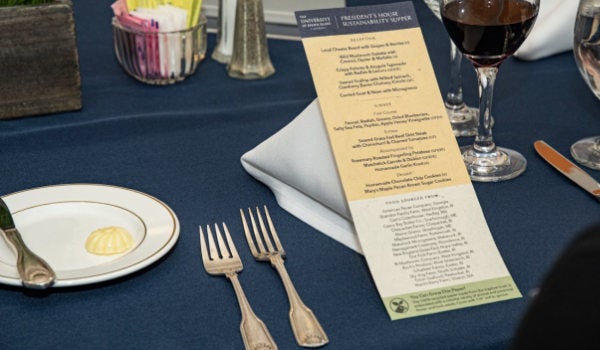The Sustainability Suppers series brings together scholars, alumni, and state business leaders interested in the long-term maintenance of our planet’s viability for supporting all life.
Supper guests with diverse perspectives on a particular aspect of sustainability share a meal of local, sustainably-sourced food. The Sustainability Suppers series is the creation of Mary Parlange, and suppers are hosted by URI President Marc B. Parlange and Mary Parlange in their campus home.
In framing supper discussions, URI seeks to understand and develop practices we might employ to sustain all life on the planet. Sustainability is examined through the lenses of academic disciplines, environmental stewardship, and commerce. Supper guests consider sustainability as it relates to science communication, finance and investing, culture, fast fashion, food production, supply chain management, textile production, microplastics pollution, energy, transportation, tourism, waste streams, and water.
Sustainability in Action
URI faculty, researchers, and students are defining the future of sustainability. Read their stories.
“The idea is that we’ll connect, discuss, and then go out into our communities with new partnerships, new ideas, new knowledge, and new impetus to act.”Mary Parlange

